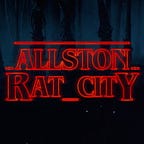A PLEA TO THE ONE-IN-THREE
They point fingers at us.
To them, we are the cause of today’s housing crunch.
There are, of course, much more complex reasons. To name a few: 1994 statewide ballot abolishing rent control in the metro area, regional recession, lack of dorm beds provided by universities, NIMBY groups stalling dormitory projects, landlords taking advantage of students and raising rents.
Affordable housing is the most important issue facing Boston today.
Families need to be able to stay in their homes, or, at least their neighborhoods. Young families who can’t afford to raise their children leave. College graduates struggle because you need two jobs to afford to rent and that degree isn’t doing anything but collecting dust.
People born and raised in the city are being pushed out because it simply doesn’t make sense to continue living in their hometown.
The focus here is the Community Preservation Act: a law that was passed in the Massachusetts Legislature in 2000. It is the most important measure in years, yet not too many people are aware that Boston has a question five.
I know, it isn’t on Ballotpedia. I know, there haven’t been any advertisements other than a mailer last month.
This isn’t the first time it’s been on the ballot here either. In 2001 it ultimately rejected. Of course, when there isn’t a general election going on, voting-turnout is dismal. (In fact, WBUR reports that it lost 57–43.)
There is a recurring fear that, on November 8, residents will go to the polls to vote in the general election but vote blindly on the rest of the ballot. It will be a repeat of 2001.
But this isn’t 2001.
This is A PLEA TO THE ONE-IN-THREE to VOTE YES ON QUESTION FIVE.
This is an opportunity for Millennials (and even, at this point, younger students) to prove their worth to the city by voting for a measure that has the chance of greatly enriching the quality of life for many residents in the city of Boston. This is a bill which, according to the official language, will “establish a dedicated funding source to enable the City of Boston to (1) help meet affordable housing needs; (2) create and rehabilitate parks, playgrounds and athletic fields; (3) preserve land for outdoor recreational uses and conservation areas; and (4) preserve and rehabilitate historic buildings and resources.”
If you at least a tiny, itty-bit identify as civic-minded, then you should be sold at the phrase “meet affordable housing needs.”
What happens if it passes?
First, beginning in 2018, an additional one percent surcharge fee will be added onto existing property taxes. If you are a property owner, you can use this handy calculator created by the city to find out how much you’ll be paying into it.
According to Yes for a Better Boston, who has taken their grassroots campaign from neighborhoods straight to the ballot, the property tax surcharge will “generate up to $20 million every year.”
Some property owners may oppose it based on already high property taxes. In addition, renters may see a slight increase in their rent by landlords who own a considerable amount of property.
Secondly, projects approved will matched by a state trust fund created 16 years ago. Boston taxpayers have actually been contributing to this state fund since its inception. This won’t change no matter what happens. Other municipalities will continue to have help from Boston taxpayers. The only difference would be that, for the first time, Boston taxpayers would be benefitting from the fund.
Finally, the City will be allowed to commit funds towards projects as they see fit.
Read the Act here.
One of the major questions many residents have is about the actual implementation of the law. There’s a mandated committee. Who selects its members? What are the qualifications?
According to state law, a committee comprising of “not less than five nor more than nine members” will be selected. A select number of members must come from backgrounds in conservation, historic preservation, planning, parks and recreation, and housing. It is recommended by Yes for a Better Boston that the remaining four seats be filled by community leaders who “reflect the City’s cultural, racial, geographic, and economic diversity.”
It is imperative that once the CPA passes, the community has as much input as possible when it comes to who serves on the committee, and which projects are approved. The Community Preservation Committee must be transparent. Whether or not it will be, we will see.
There will undoubtedly be many watchful eyes in the first couple of years.
There will be debate. There will be collaboration and compromise.
There needs to be a push for low-income housing before anything else.
Greater steps must be taken in the future that would allow easier development of affordable units.
First, the CPA needs to pass. With the help of every voter under the age of 34, who make up a third of the city, it can.
Assist the communities that have been already been gentrified and help others slow it down. Assist your neighbors. Help them stay here. Help them continue to write the history of Boston.
Our generation must do better by the neighborhoods that we live in. A lot of us come here for school, and a lot of us leave. The skills we’ve taken loans out to learn can’t go to waste. We, as the next great generation, must work together to solve the affordable housing crisis.
The Community Preservation Act is a leap ahead.
We invite everyone to join in on conversation and debate. Reach us at @AllstonRatCity on Twitter.
